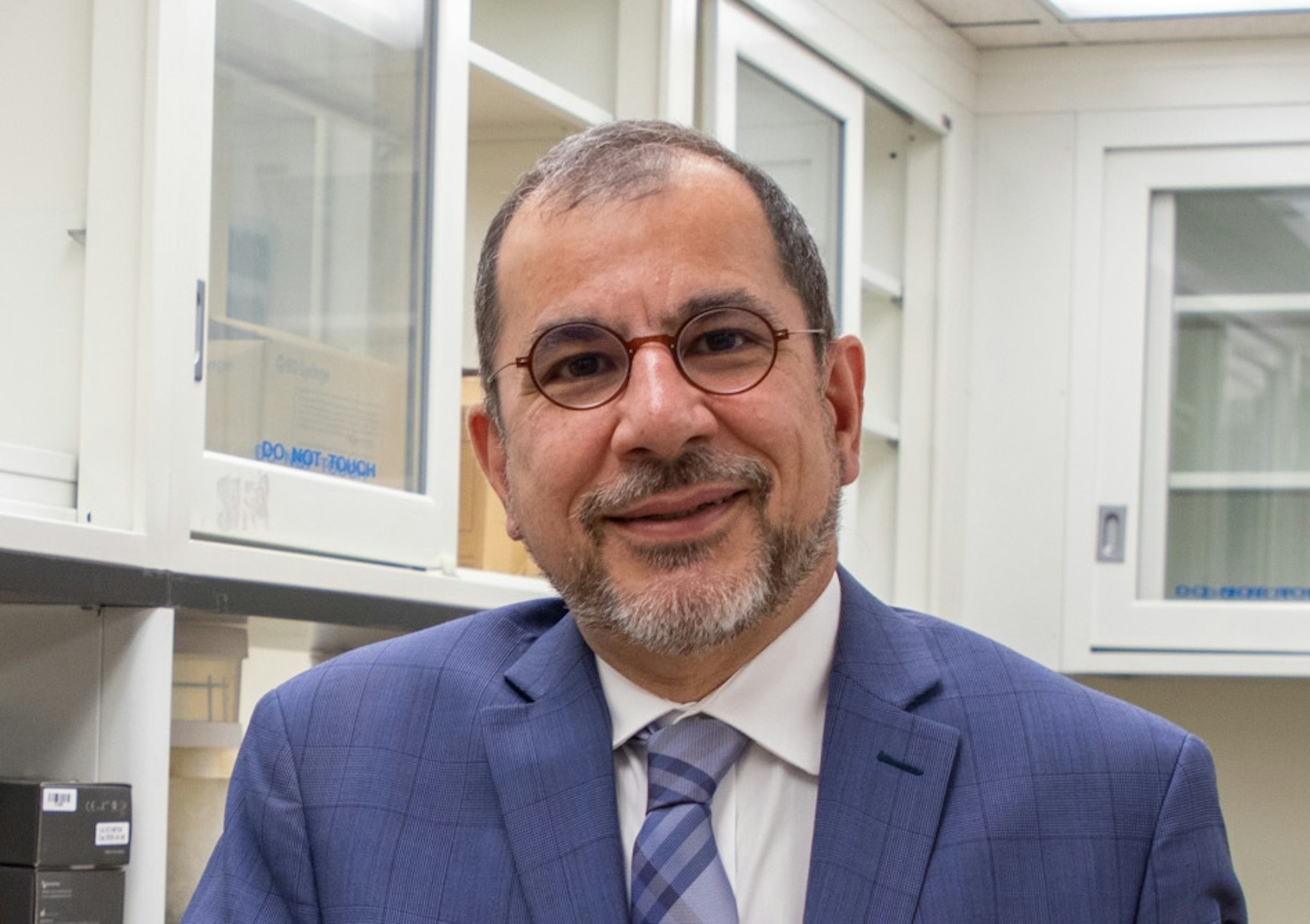A Team Committed to Translational Research
Cancer strikes millions of Americans every year. In West Virginia, lung cancer, pancreatic cancer, and brain cancer are particularly common. Responding to this urgent challenge, a team of nationally recognized researchers has relocated to the state with a mission: to transform cancer care and accelerate the development of life-saving therapies.
The Emadi Lab – led by Ashkan Emadi, MD, PhD, and based at the WVU Cancer Institute – works closely with a team of scientific collaborators, including Rachel Abbotts, MD, PhD, and Dominique Bollino, PhD. Together they pursue complementary research in cancer metabolism, cancer immunology, DNA repair pathways, and experimental therapeutics, with each investigator leading distinct, independent projects within a collaborative framework.
Dr. Emadi, a physician-scientist with a PhD in organic chemistry and training in hematology/oncology, was recruited in 2024 as the inaugural chair of the Department of Medical Oncology. Drs. Abbotts and Bollino joined in 2024 as research assistant professors.
Their relocation reflects WVU’s institutional commitment to innovation, collaboration, and growth in pursuit of National Cancer Institute designation.
“Exploring cancer at WVU Medicine is a different challenge,” says Dr. Emadi. “The state is rural and rugged. There are many social limitations and restrictions. People often have to travel long distances to receive the care they need. That causes a lot of poor health-related outcomes, including cancer-related mortality.”
The team’s presence strengthens the WVU Cancer Institute’s ability to address cancers that disproportionately affect West Virginians, a state that unfortunately leads the nation in cancer death rates.
Translational Research with Immediate Impact
The Emadi Lab’s central mission is to turn discoveries from the lab into real-world therapies that improve lives. Dr. Emadi and his colleagues are internationally recognized for their pioneering work, which spans both basic science and clinical applications.
Dr. Emadi has over 150 scholarly publications, including work in high-impact journals, such as NEJM, JAMA, Blood, and Leukemia, as well as seminal chapters in Wintrobe’s Clinical Hematology and The Merck Manual. Dr. Emadi has delivered over 140 invited presentations worldwide and has designed and led numerous investigator-initiated trials and holds multiple patents, advancing the field of cancer metabolism and therapeutics.
His groundbreaking work includes a first-in-kind treatment regimen that combines venetoclax, a BCL-2 inhibitor, with pegcrisantaspase (a bacterial-derived enzyme that depletes key amino acids). This strategy starves cancer cells of nutrients like asparagine and glutamine and early clinical studies have shown promise in patients with few remaining treatment options. This novel metabolic approach is now being investigated in other cancers, including pancreatic cancer, mesothelioma, and brain tumors.
West Virginia’s unique demographic and environmental factors, such as high rates of diabetes, tobacco use, and geographic isolation, make it an ideal setting for studying population-specific cancer risks. By understanding how these shared traits impact tumor behavior, the Emadi Lab aims to design more personalized treatment strategies for West Virginians.
Understanding Genetic Vulnerabilities in Lung Cancer
Dr. Abbotts, an MD/PhD physician-scientist, brings her expertise in cancer epigenetics and immune signaling. She is especially interested in how tumors with TP53 mutations respond to low-dose epigenetic therapy. During her time at another institution, she co-led a Cancer Research-published study showing that such therapy can unmask dormant viral elements in cancer cells – a phenomenon known as “viral mimicry.” This process reactivates antiviral immune responses and creates DNA repair defects, sensitizing tumors to immunotherapy, PARP inhibitors, and radiation.
“Mutated TP53 is present in half of lung cancer cases,” Dr. Abbotts explains. “It significantly impacts immunotherapy and patient outcomes. The location of a mutation in the tumor’s DNA determines how it responds to these therapies. Understanding TP53 could be key to creating personalized treatment approaches for patients who often have poor prognoses.”
Targeting Tumor Metabolism in Solid Tumors
Dr. Bollino, a PhD-trained cancer biologist, focuses on exploiting the nutritional vulnerabilities of tumors. Her research explores how amino acid-depleting enzymes, such as asparaginase, can be used to treat cancers like pancreatic cancer and glioblastoma, both highly aggressive and difficult to treat.
“Some cancers, particularly these two, rely on glutamine in the body to fuel their growth and survival,” Dr. Bollino says. “We target this dependence in the lab using enzymes that reduce plasma glutamine and asparagine levels.”
Her goal is to reduce the required dosage of toxic chemotherapy drugs by pairing metabolic therapy with other treatments, limiting side effects, and improving patient quality of life.
Building for the Future Cancer Research
Together, Drs. Emadi, Abbotts, and Bollino bring a multifaceted, synergistic approach to translational oncology. Their work spans molecular mechanisms, therapeutic innovation, and clinical trial design. Their lab embodies the full bench-to-bedside spectrum, aiming to provide patients with experimental therapies once available only at elite urban centers.
Their move to WVU is part of a broader effort to expand access to advanced research and care across Appalachia. They are mentoring young scientists and clinicians in West Virginia, helping to build a pipeline of cancer researchers with a commitment to community-focused, high-impact science.
By anchoring their work at WVU, they’re helping to redefine what’s possible for cancer treatment in rural America. Their collaborative vision – science that saves lives – positions West Virginia as an emerging leader in cancer discovery, one that offers new hope to patients across the region and beyond.
